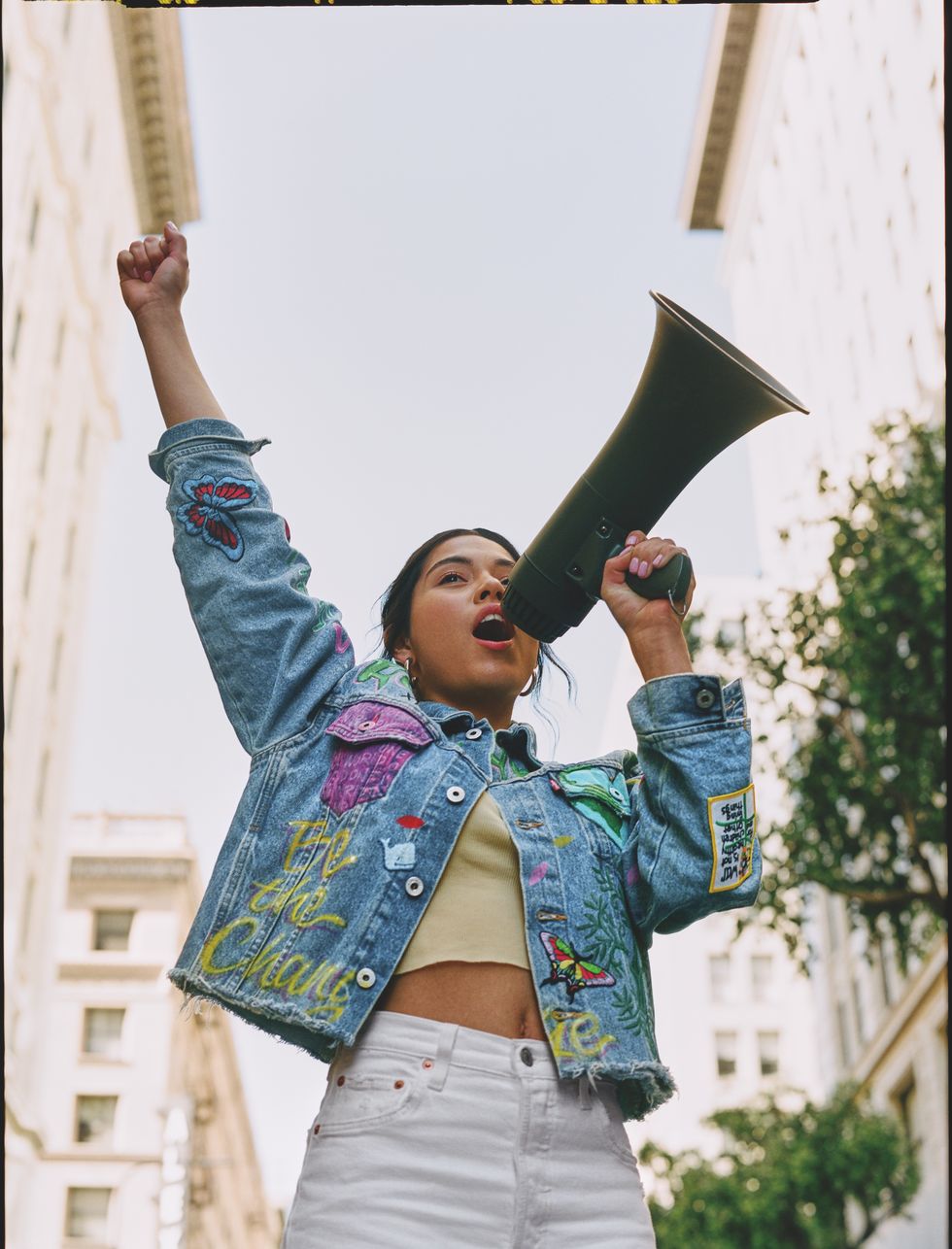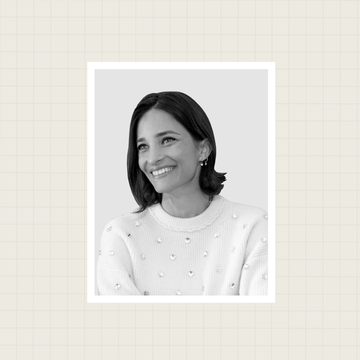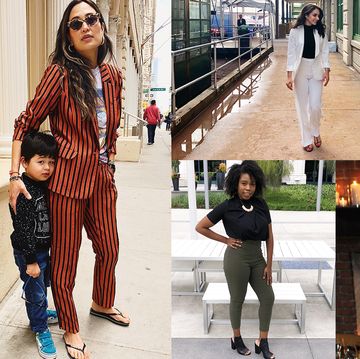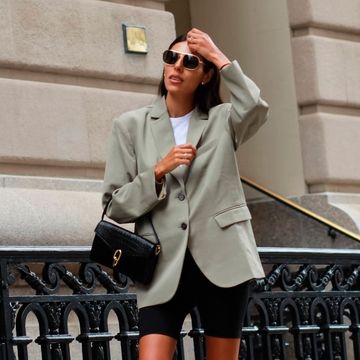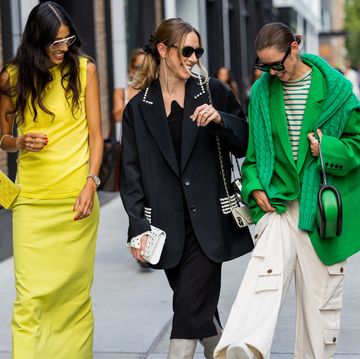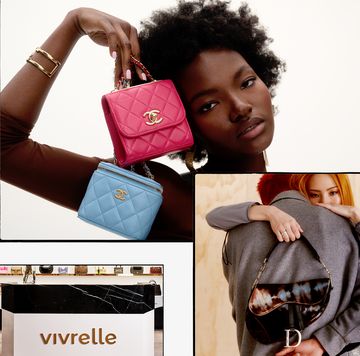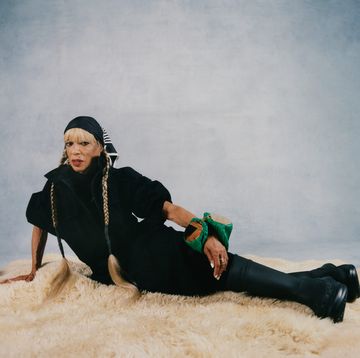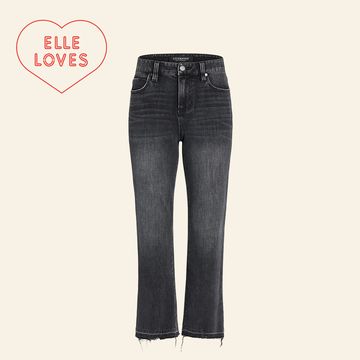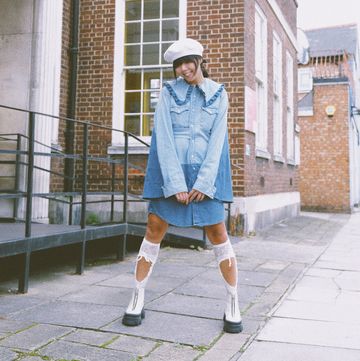Xiye Bastida already knows what it means to have her life forever altered by the effects of climate change. The 19-year-old climate activist grew up in San Pedro Tultepec, Mexico, where unprecedented rainfall caused flooding that kept her from attending school. When she moved to New York City in 2015, she saw the damage caused by Hurricane Sandy and knew that the climate crisis was happening everywhere.
But instead of feeling defeated, Bastida channeled her energy into being a stubborn optimist—a phrase she tells ELLE.com she borrowed from Christiana Figueres, an architect of the Paris Agreement. “That's super important for us to be optimists as climate activists, because it means we believe in our power to change the world,” Bastida says. For her, that optimism has translated into being an organizer with the climate strike movement Fridays for Future, co-founding the Re-Earth Initiative, and partnering with brands like Levi's to spread awareness about the environmental impacts of clothing production and consumption.
As part of Levi's spring campaign Buy Better, Wear Longer, the brand brought together six “changemakers,” including Bastida alongside Emma Chamberlain, and Jaden Smith, to discuss the responsibility we all have in choosing when and how we buy clothes. The message of the campaign is pretty straightforward, as the six featured in the video above explain: “When we make better, we can buy better. When we buy better, we can wear longer. When we wear longer, we can buy less. When we buy less, we can waste less. When we waste less, we can change for good.”
Levi's is also encouraging customers to use the brand's in-store Tailor Shops to fix items when needed, therefore extending their life in your closet. (FYI, if you're part of Levi's Red Tab membership program, you can receive two free repairs and two free hems a year.)
The mission matches up with Bastida's own approach to shopping; she avoids fast fashion and looks for secondhand clothing made out of durable materials. “I'm looking for clothes that are going to last long,” she says. “What I like about a lot of the Levi's products that I've seen is they literally have tags telling you: You should wash this every 10 uses. It's not only the brand making their clothes better but also giving some tips about how to take better care of your clothes.”
The campaign is also a way to combat what Bastida calls “throwaway culture,” where we don't consider that throwing something away simply means moving it out of our sight. “[These items] end up in landfills, they end up in the ocean, they end up polluting communities,” she says, noting that only nine percent of plastic waste actually gets recycled. “We shouldn't live in a system that's so much about throwing things away but actually building relationships with the things that we own.”
But as empowering as it can be to shift your personal habits, at times it can also feel unremarkable, especially when you consider that a relatively small number of companies are responsible for a majority of global greenhouse gas emissions. Can choosing not to buy another pair of jeans make that much of a difference? “Our carbon footprint is so tiny, so it feels like individual action doesn't have as much impact as systemic change. But the truth is that we're social creatures. When we talk to each other, we can change social norms,” Bastida says. “Me changing my pattern of consumption and telling my friends about it, just that line of consciousness growing is so powerful...But if you can channel your individual actions to also create systemic change, that's also important.” She recommends contacting companies and asking: Where are these clothes coming from? Where are they going? What are you doing for plastic reduction, for water reduction, to reduce your carbon footprint?
After all, as Bastida points out, true change—like getting President Biden to commit to reducing U.S. greenhouse gas emissions by 50 percent by 2030—doesn't happen unless we ask for it. And for her, celebrating those wins is essential, a necessary part of climate activism. “We're choosing this line of work for life,” she says. “If we don't get joy out of the things we are able to change, it's just going to become exhausting, and we're going to burn out. Ground yourself. Remind yourself what you're fighting for. You're fighting for future generations to feel what you're feeling when you go outside. You're fighting for stability, and you're fighting for joy.”

Madison is a senior writer/editor at ELLE.com, covering news, politics, and culture. When she's not on the internet, you can most likely find her taking a nap or eating banana bread.


